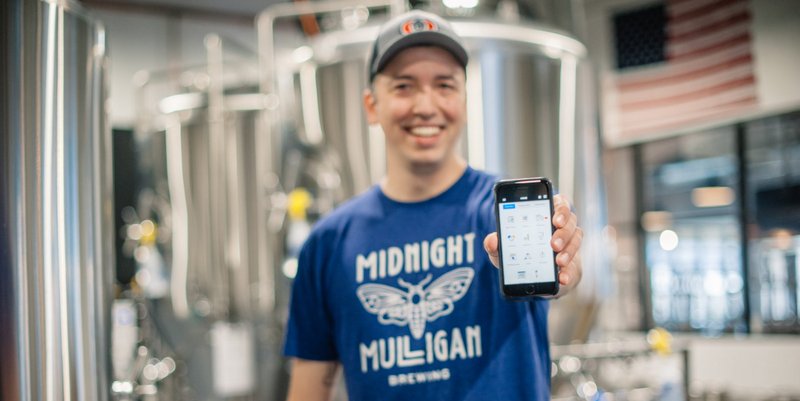ERP systems
- Functionality — If you are looking for a robust, all-encompassing software solution, this is a place to start. Understand that your ERP will handle everything related to the business: manufacturing; inventory; AR; AP; reporting; HR; forecasting; and job costing to name a few. ERP systems give you a single point access to all these functions.
- Complexity — ERP systems are complex in nature, requiring a single piece of software to manage and share this much data, which is complex. ERP systems require dedicated staff to maintain it on a real time basis. The workflow may differ from what makes sense, but it will get you to the end result.
- Deployment — ERP systems are available either in an on-premise (server) model or virtual (cloud) model. On-premise deployment really does not make sense anymore given the affordability of hosted services. I could speak for days on the topic of cloud vs. local but let me sum it up: Cloud is the way to go.
- Cost — ERP systems are expensive. They usually come with a setup fee, migration fee and monthly or annual maintenance fee. If your brewery can extract the cost with reliable, accurate information, then it is justified.
I believe ERP systems have a place in the brewing industry. Given all the points I have laid out, there is a tipping point at which I suggest an ERP system be implemented. Certainly, start-up breweries have no business purchasing an ERP, simply for the fact that the resources will not be there for average use of the system. On the flip side, a fast growing brewery has a small window to make that jump to an ERP before data migration and complexity becomes a factor. Bottom line, consult with an expert on what the current processes and goals need to look like when considering an ERP.
Best-of-breed (BoB)
- Functionality — BoB systems are going to have their own look and feel. User experience is important to SaaS developers, and so ease of use is usually the highlight of the software. It is not uncommon to have four to five different pieces of software that all speak to each other. Example: brewery management, accounting, HR and AP are all separate, and they all send the pertinent data to one another for reliable information.
- Complexity — The complexity of the separate pieces of software vary. Having a deep understanding as to the functionality and purpose of each product will help. The pleasant user interface allows for enjoyment of use but does not necessarily reduce the complexity. In my opinion, the biggest hurdle with BoB is understanding the integration of data transfers. More specifically how it transfers, when it transfers and what transfers.
- Deployment — BoB is going to be 99.9 percent cloud based pieces of software. This environment would be very costly to bring to an in-house server because it would be the equivalent of writing your own software. Advantages of the cloud are: data security; automatic updates; low hardware cost; and fast on-boarding. BoB solutions rarely migrate historical data, so you are starting from scratch. Lastly, BoB can be implemented one process at a time. This is a nice alternative; I suggest a formal plan be written up as to what pieces will be brought on.
- Cost — To label a BoB system as cheap or expensive would not be accurate. Most BoB systems require a monthly subscription. Monthly fees vary, but if you are using multiple products to support your business, it can add up. BoB solutions rarely have contracts so you are free to come and go. Some programs will release your data to you if you decide to leave.
Best-of-Breed software solutions are a nice option for breweries who want to implement software piecemeal into their processes. This option can be integrated to help streamline a process with moderate time and financial commitment. The integration between applications may take some time to setup. More importantly understanding how the pieces will talk to each other is critical. Simply relying on a sync to happen is not best practices. I think this is an effective tool for a brewery with the right person leading the charge. As with ERP, it’s best to consult with an expert to determine if a Best-of Breed solution will work for your brewery.
 Chris Farmand is the founder of Small Batch Standard, a CPA firm helping craft breweries across North America. Chris has more than 10 years of tax and accounting experience, with the last 3 years dedicated to the craft brewing industry. Small Batch Standard believes brewery owners should have reliable financials while focusing on what they do best, making beer. He can be reached at [email protected].
Chris Farmand is the founder of Small Batch Standard, a CPA firm helping craft breweries across North America. Chris has more than 10 years of tax and accounting experience, with the last 3 years dedicated to the craft brewing industry. Small Batch Standard believes brewery owners should have reliable financials while focusing on what they do best, making beer. He can be reached at [email protected].





Spencer Cooper says
What are some specific examples of Best-of-breed software? I understand the concept, but would just like to see a list of some things I can look at.
30yr craftbeer, 13yr homebrew, 17yr functional SAP-FI-SD-MM, acquisition integration experience seeks craft brewery. http://t.co/uu9STi1p3W
RT @CraftBrewingBiz: Business software selection: ERP or best-of-breed?http://t.co/jGHRwj4nJq @cfarmand shares his advice.
Business software selection: ERP or best-of-breed? http://t.co/gLpw9qGoxu via @craftbrewingbiz